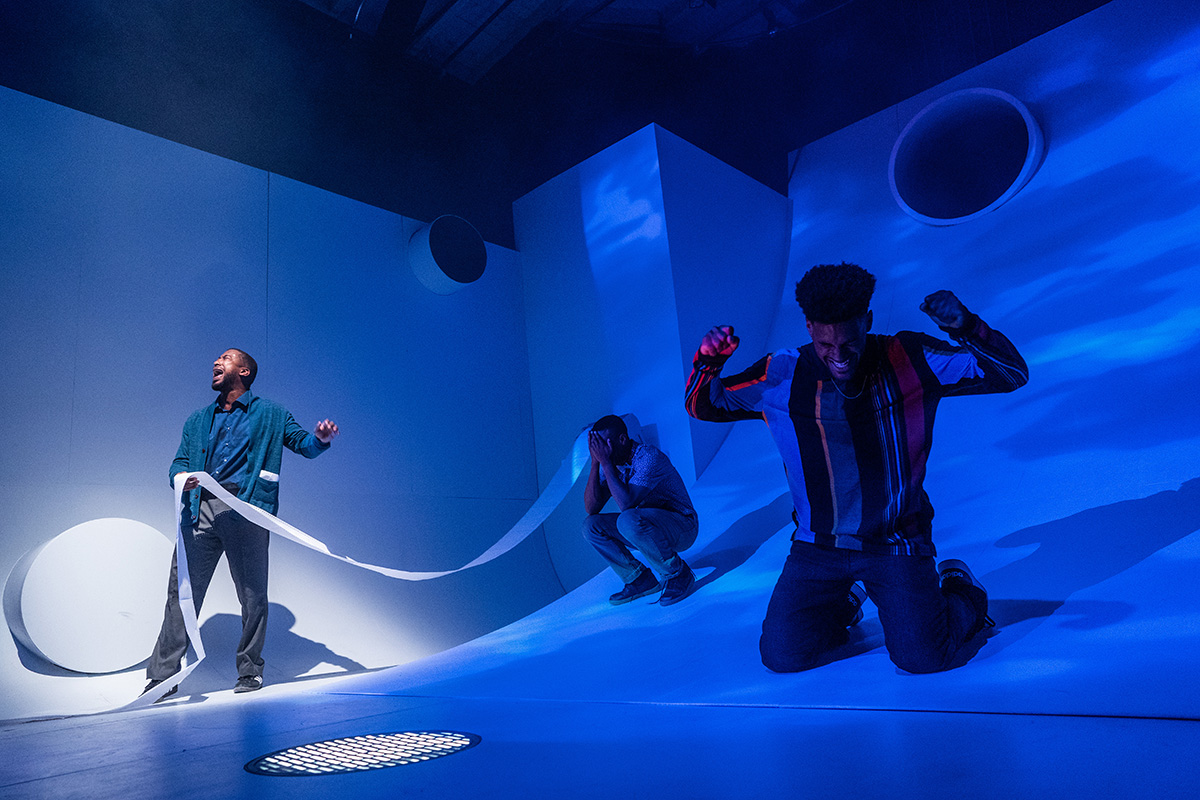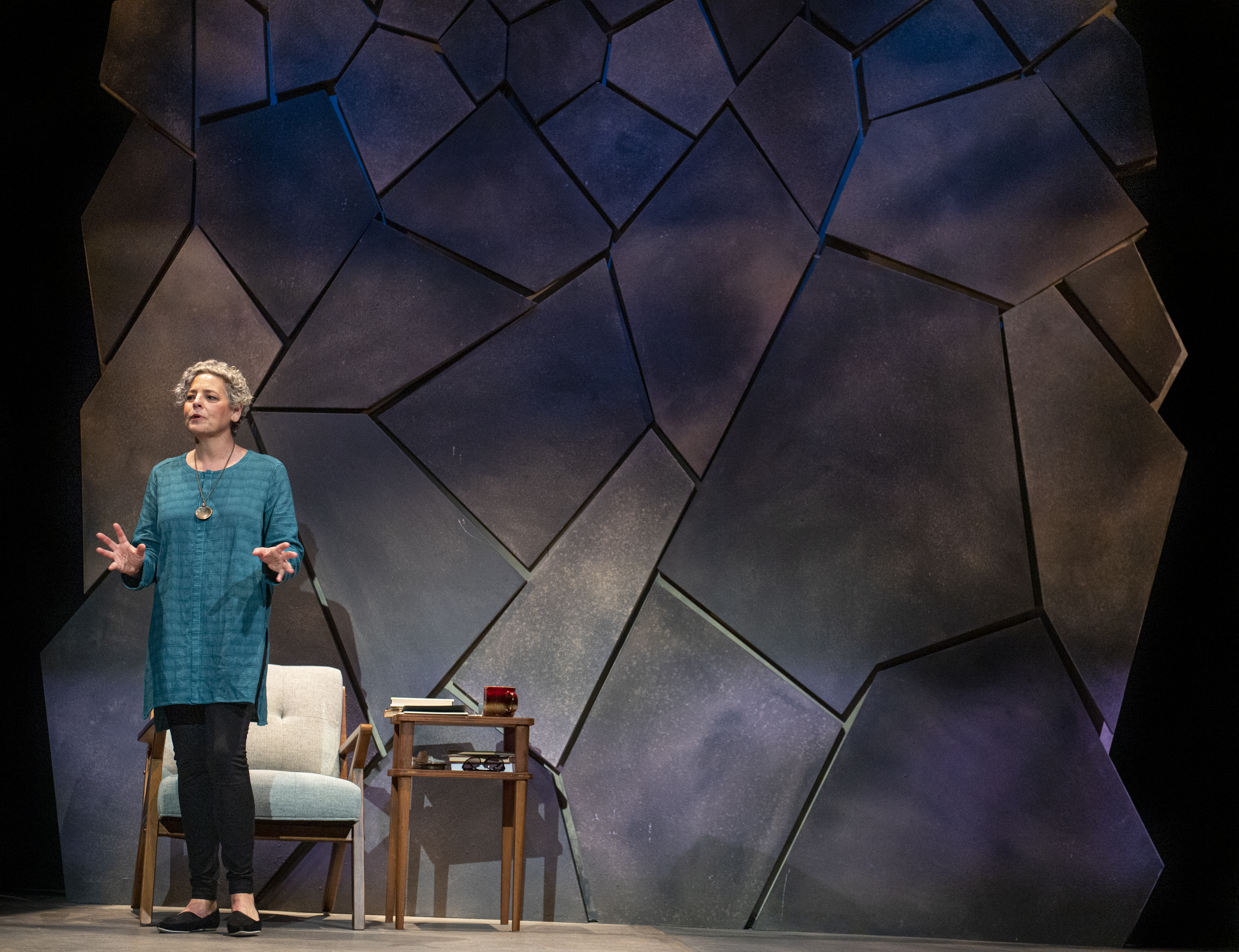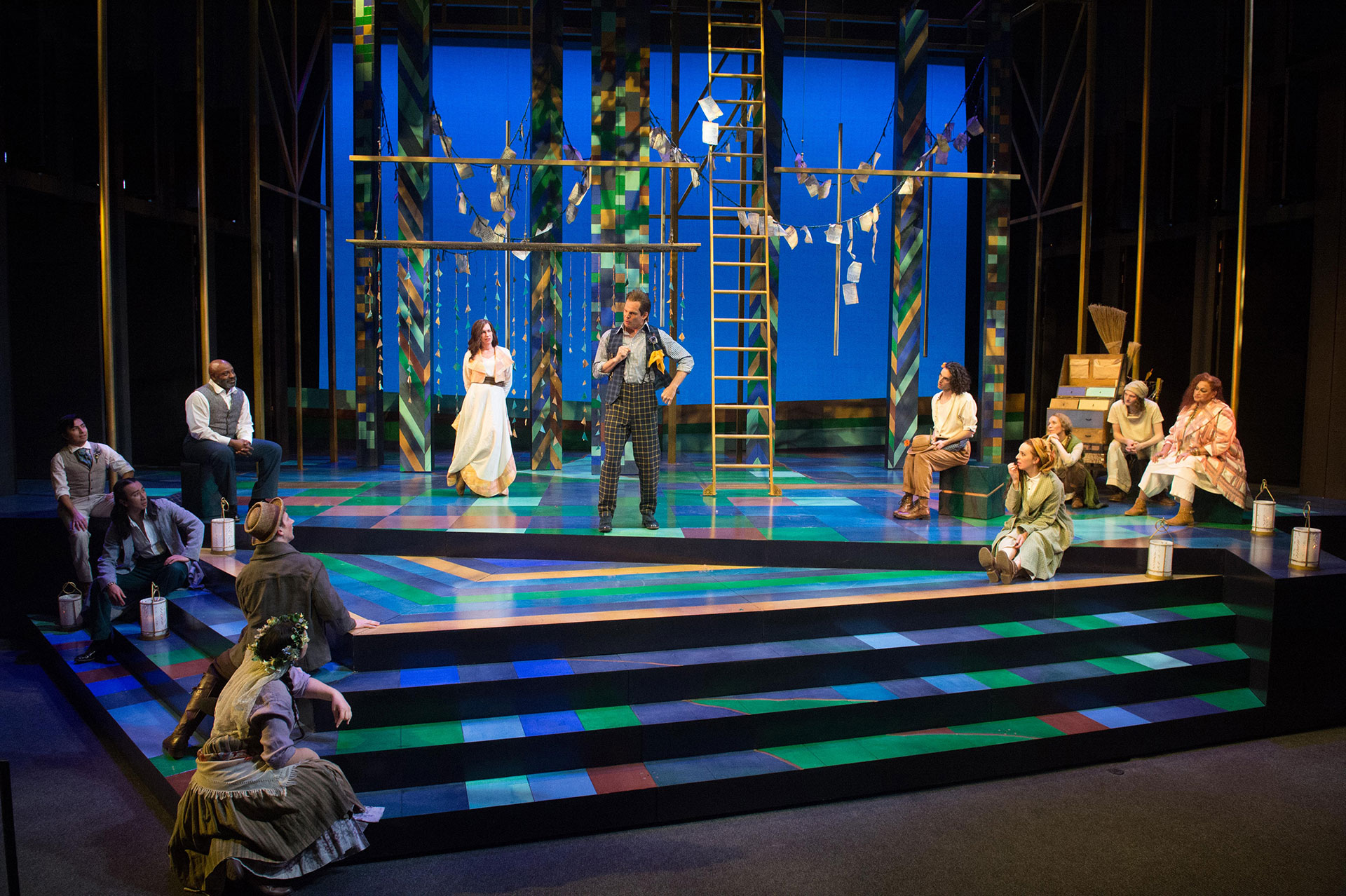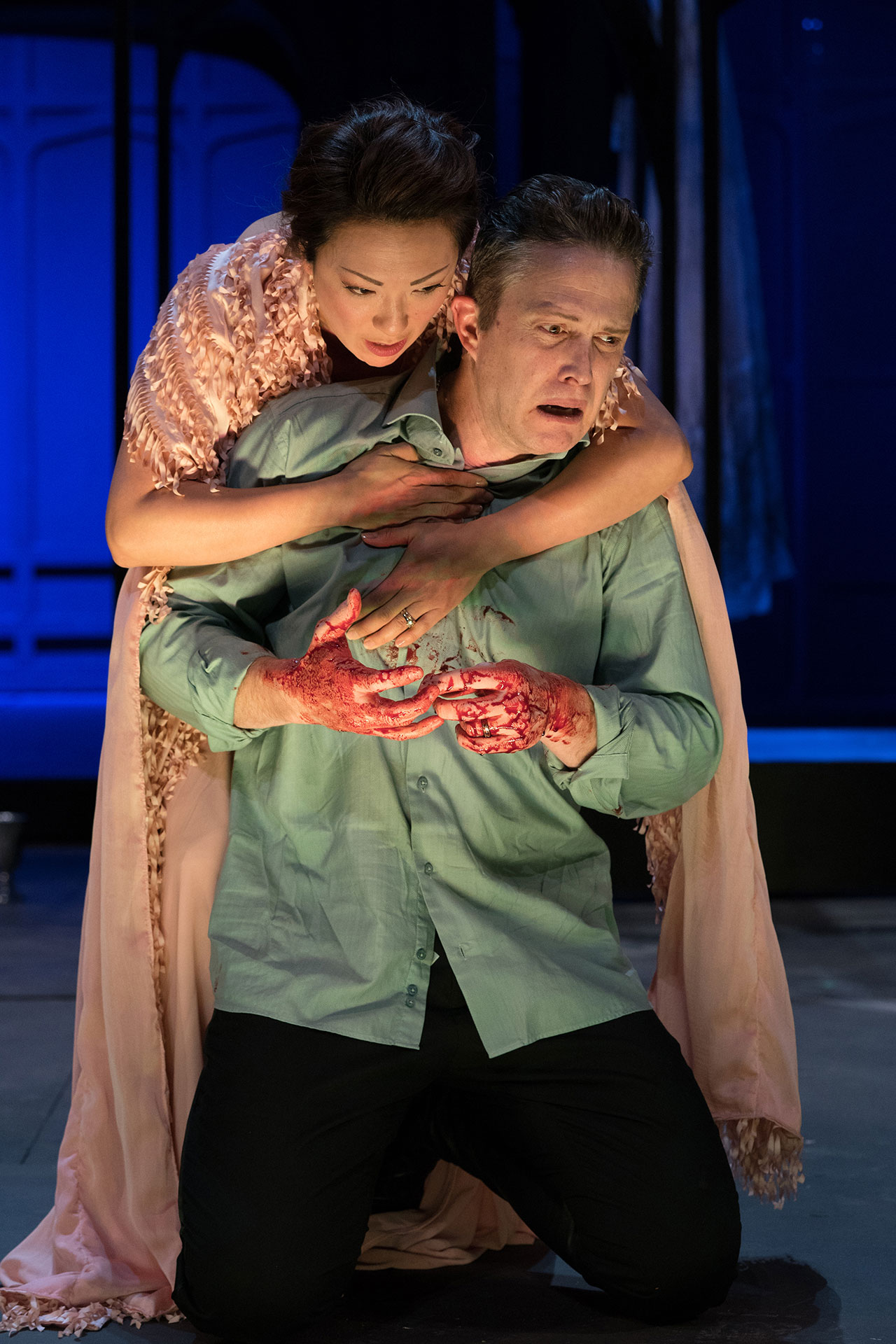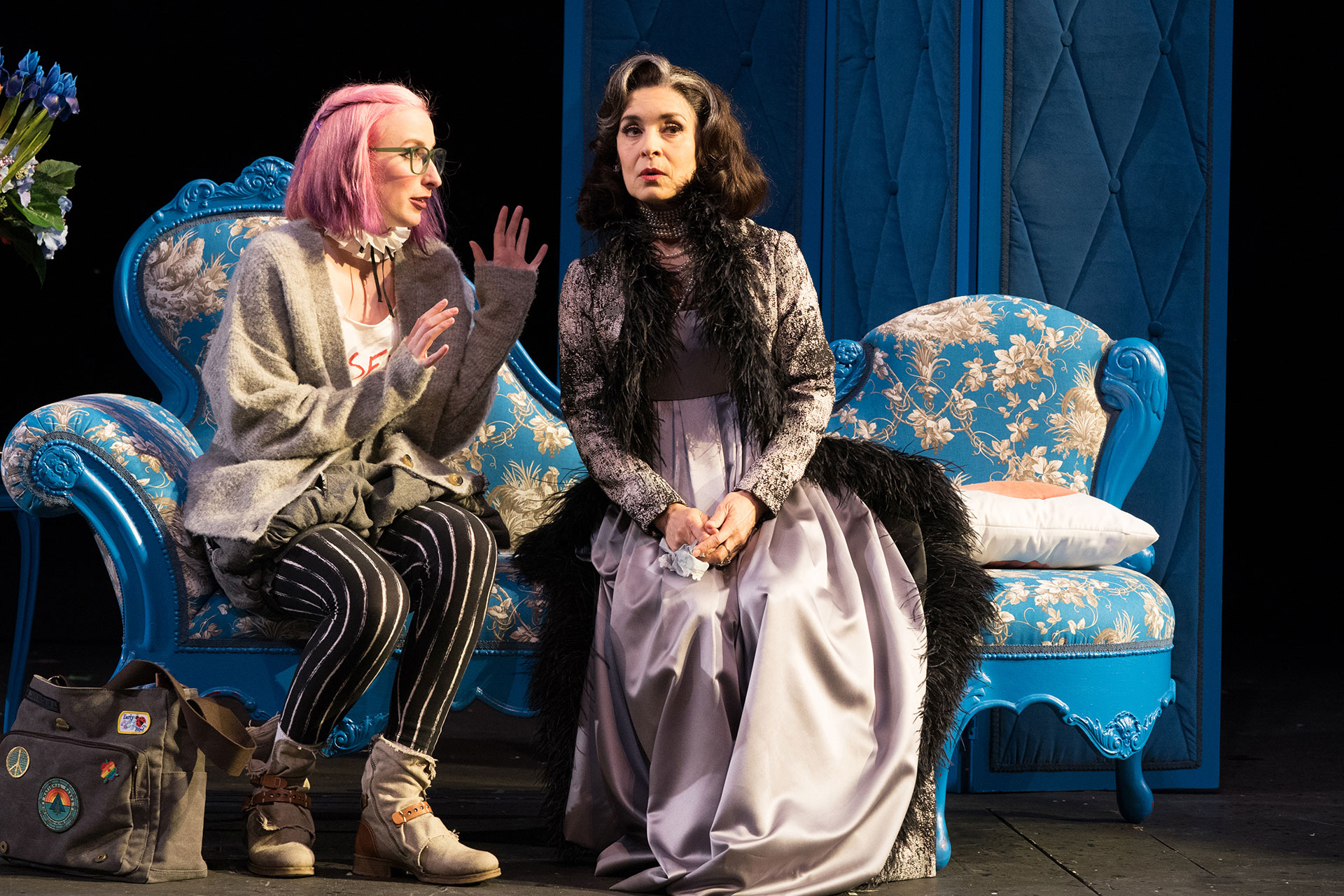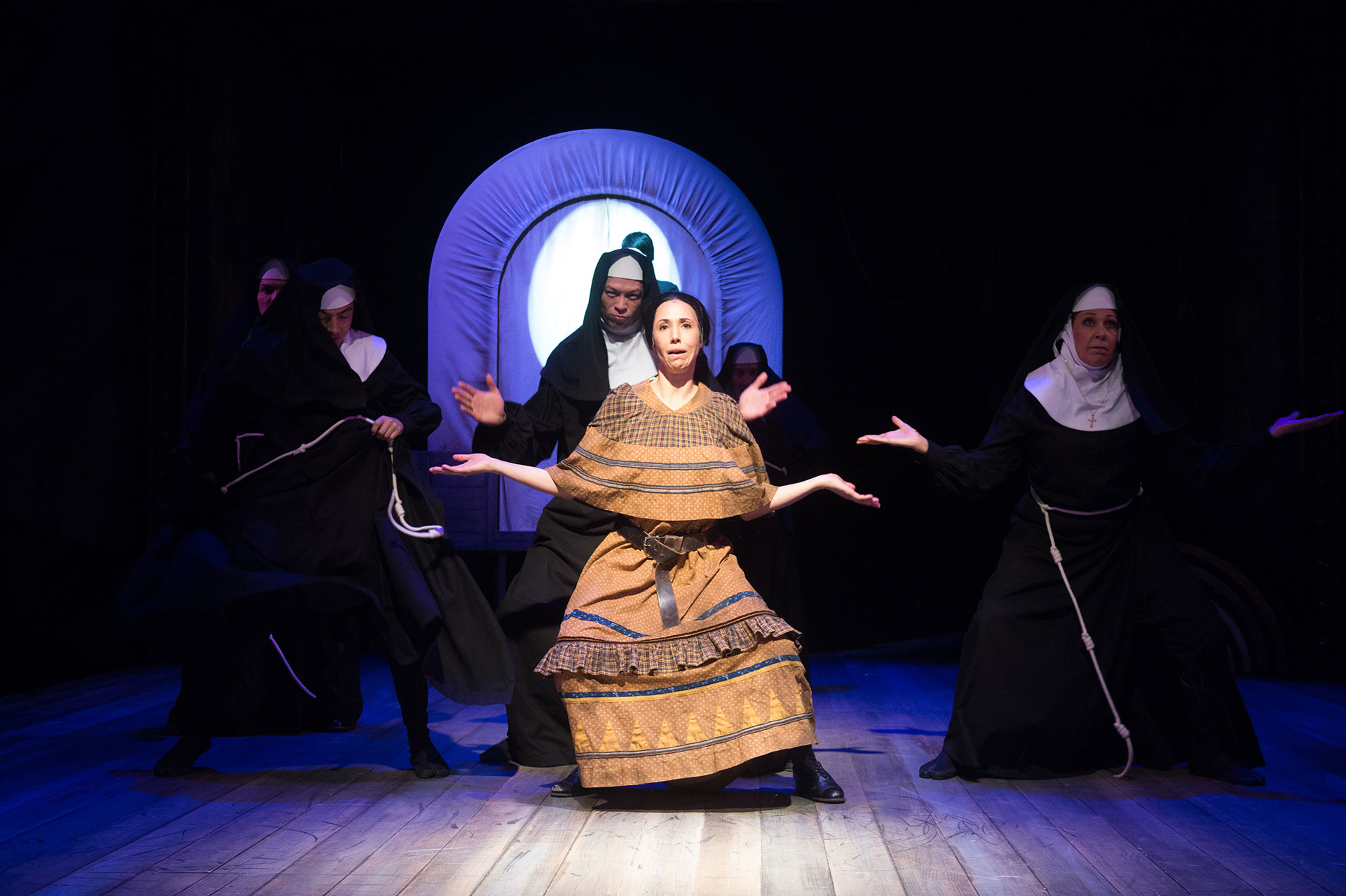/Videos_and_Photos/Photos/0559_Birds-of-a-Kind_On-The-Run.jpg) |
| Stratford Festival production photo by David Hou |
The Play
I wasn't sure what to make of this play when we were deciding which shows to see. My wife and I both kept calling it "Birds of a Feather", which is how "La Cage Au Folles" was sometimes translated into English, and that is totally not what this play is about (though ironically, it was originally written and produced in French). The show itself had a fairly interesting and long journey into production, but it all seems to fit.So what is it? This is a play about identity and belonging, about prejudices and karma. We start with the rather odd meeting of a couple of college students: she (Wahida) an Arab-American, but very much American, he (Eitan) an Israeli-American Jew who is somewhere on the autism spectrum. They manage to overcome the awkwardness of the meeting and fall in love.
Things start to fly apart at a family Passover seder where Wahida is to meet Eitan's family. It does not go well. We start seeing the layers of experience and prejudice that underlie the attitudes of Eitan's family members. His parents live in Germany, though the father grew up in Israel. The grandparents are estranged for (initially) unexplained reasons.
None of this description is going to do justice to the play. It's deep and complex, and the characters are rich and interesting, and the language bounces among English, Hebrew, German, and occasionally Arabic and bits of Yiddish. Projected supertitles appear during the non-English parts, and it works well. But the key is noting how various characters slip in and out of languages as they change topics and/or feel the need to exclude others from the conversation.
Eventually all the questions are answered fairly well. Some of it I found fairly predictable, but nonthing about it was trite or simple, and there are layers of the plot and story that we're still talking about almost a week later. This is a good and interesting play.
The Production
Super complex. I believe all the actors in the play had to speak in at least two, and often three, languages. That's fairly common in Canada, which famously has two official languages. But finding that many fluent Hebrew and Arabic speakers might be tough. Indeed, talking with people around the Festival, we heard stories of some of the actors struggling a bit to learn such large parts in unfamiliar tongues. But to our ears, it turned out pretty convincingly, though at least one of the actors seemed to struggle a little with the Hebrew.The acting was unsurprisingly strong, this being Stratford. Jakob Eiman as Eitan and Baraka Rahmani as Wahida were a strong core, and Sarah Orenstein as Norah and Alon Nashman as David were quite powerful, though in very different ways. David is loud and angry and opinionated; Norah is reticent and rather mournful. But both project great power on stage. This was a great use of the close quarters of the Studio Theatre, where every seat feels right on top of the stage.
But what really comes through is the stories. The refugees of various sorts adjusting and surviving in unfamiliar lands, the vows never to return to places that must be broken, the stories one tells oneself to get through a day, a year, a lifetime. And ultimately, the importance people put on belonging to a group, and how that relates to race, to genetics, to family, and to acceptance or the lack thereof.
Bottom Line
It's a really powerful story, told in a very challenging way. It's not always pleasant, and it's not about struggling to a happy-ever-after ending. But it feels very real, in a difficult and searching way. A lot gets crammed into a small space and condensed time, but that's the beauty of theater.The show runs in Stratford through October 13. This one would justify a trip to Canada--it's really that good.
/Videos_and_Photos/Photos/1154_The-Front-Page_On-The-Run.jpg)
/Videos_and_Photos/Photos/HN8-On-The-Run-Photography_0600.jpg?n=2085)
/Videos_and_Photos/Photos/01%20LSH%20OTR.jpg?n=3144)
